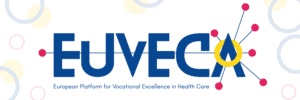The University of Lübeck is a German university in the Hanseatic city of Lübeck, founded in 1964 as the Lübeck Medical Academy. In 1973 this became an independent scientific university,since 2015 the university is organized as a foundation university.
There are over 5000 students enrolled at the university, of which 2.098 (state 2021) are students in medicine and health related studies. In 2014, the establishment of the Nursing B.Sc. program accelerated the academization of the health and therapy professions at the university. This was followed by midwifery, physiotherapy and speech pathology and occupational therapy as degree programs. The university campus is inseparable from Lübeck University Hospital. In 2003 there was a fusion with the University Hospital Kiel throughout the University Hospital Schleswig-Holstein was founded and is now the second largest university hospital in Germany.
Under the umbrella of the medical faculty is located the Nursing Research Unit, at the Institute for Social Medicine and Epidemiology. One focus of the Nursing Research Unit is the development, evaluation and implementation of nursing interventions in the different settings of nursing care. Furthermore the unit is involved in teaching within the other medical- and health associated programmes.

Nursing Research Unit
(University of Luebeck)
Role in the project:
UL will coordinate and embellish the creation of the Regional Vocational Education Hub in Healthcare (RVEH) and will collaborate with the other excellence hubs from the 6 other European regions.
UL in direct cooperation with the UKSH Akademie and the regional stakeholders will concrete education and training activities in the RVEH.


